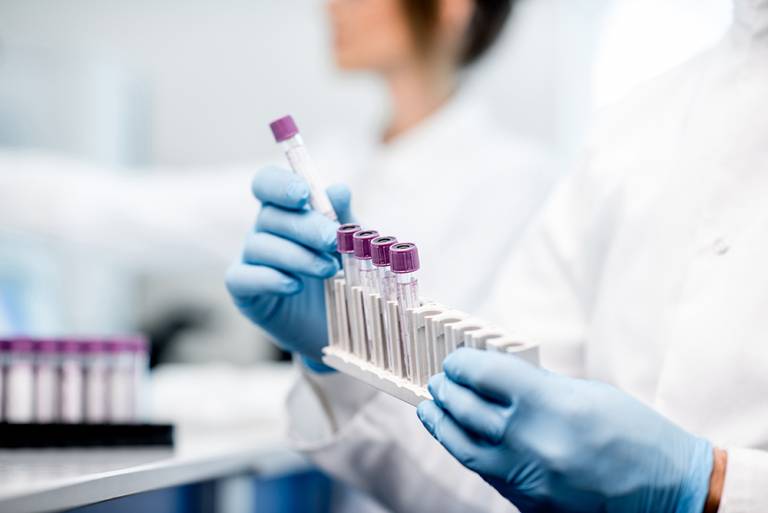Combination immunotherapy for metastatic prostate cancer shows promise
21 May 2021
A combination of two antibody therapeutics - nivolumab and ipilimumab - has achieved the best response yet seen in the treatment of metastatic prostate cancer, according to early results from a UCL-led Phase II trial.

Prostate cancer is the second most common cancer affecting men globally and the fourth most common cancer overall. Many patients with prostate cancer do not require treatment or are successfully treated, but a proportion will experience spread to other organs, which is called metastatic prostate cancer. Metastatic prostate cancer can be controlled with hormone therapy but invariably this stops working, a state known as metastatic castration-resistant prostate cancer’ (mCRPC). Despite recent advances in treatments for mCRPC the disease is incurable and has a prognosis of only 2-3 years.
The ongoing phase II NEPTUNES trial is exploring whether treatments that boost the body’s immune system (called checkpoint inhibitors) can provide benefit for patients with mCRPC. In April 2021, Dr Mark Linch from the UCL Cancer Institute, principal investigator of the NEPTUNES trial, presented preliminary data from the trial at the American Association for Cancer Research (AACR) virtual annual meeting.
Checkpoint inhibitors (CPIs) have demonstrated deep and durable responses for a range of cancers but there has been limited success in prostate cancer so far. This may be because prostate cancers are difficult for the immune system to see and hard to access due to chemical and physical barriers around the tumour. The NEPTUNES trial is testing whether a subgroup of patients which have either certain defects in the mechanism of DNA repair (making them more visable to the immune system) or already have immune cells within the tumour may render them particularly sensitive to these treatments. This combination of features has been coined the immunogenic signature (ImS+).
Nivolumab and ipilimumab are given for up to four cycles together, with nivolumab alone then used for up to a year after a 6-week gap. Cancer induces an unwanted break mechanism on the cancer killing T-cells (immune cell) enabling further cancer growth. This break can be blocked with CPIs activating the T-cells, which hopefully then find, kill and keep remembering to kill the cancer. Nivolumab blocks the PD-1 break and ipilimumab blocks the CTLA-4 break. Initial data on 35 patients with the appropriate immunogenic signature showed that 10 patients achieved the pre-specified set of criteria for a positive response (28.6% response rate). Although the data do not yet provide definitive evidence of a treatment effect, this is the highest response rate yet for immunotherapy in mCRPC and several of the responding patients have had a durable response.
Encouragingly, the study has identified features associated with a positive response to the combination therapy, such as the presence of mutated BRCA1 or BRCA2 genes or high inflammatory infiltrate within the tumour. This may provide a way to identify patients most likely to respond to the therapy. However, not all patients managed to complete the treatment, sometimes due to side effects from the treatment. The NEPTUNES trial is continuing to recruit men with mCRPC but using a better tolerated dose schedule which will hopefully provide even more benefit to patients.
This study is run by the CRUK-UCL Clinical Trials Centre and sponsored by UCL.
Further information
- Reference: Linch MD, Wong YNS, Jones RJ, et al. Nivolumab (NIVO) and ipilimumab (IPI) treatment in prostate cancer with an immunogenic signature: cohort 1 of the NEPTUNES multi-centre, two-stage biomarker- selected Phase II trial. Presented at: AACR Annual Meeting 2021; April 10-15, 2021; Virtual. Abstract LB004.
- Urological Cancer Biology Research Group - Dr Mark Linch
- Dr Mark Linch academic profile
- NEPTUNES study (CRUK-UCL Cancer Trial Centre)
 Close
Close

